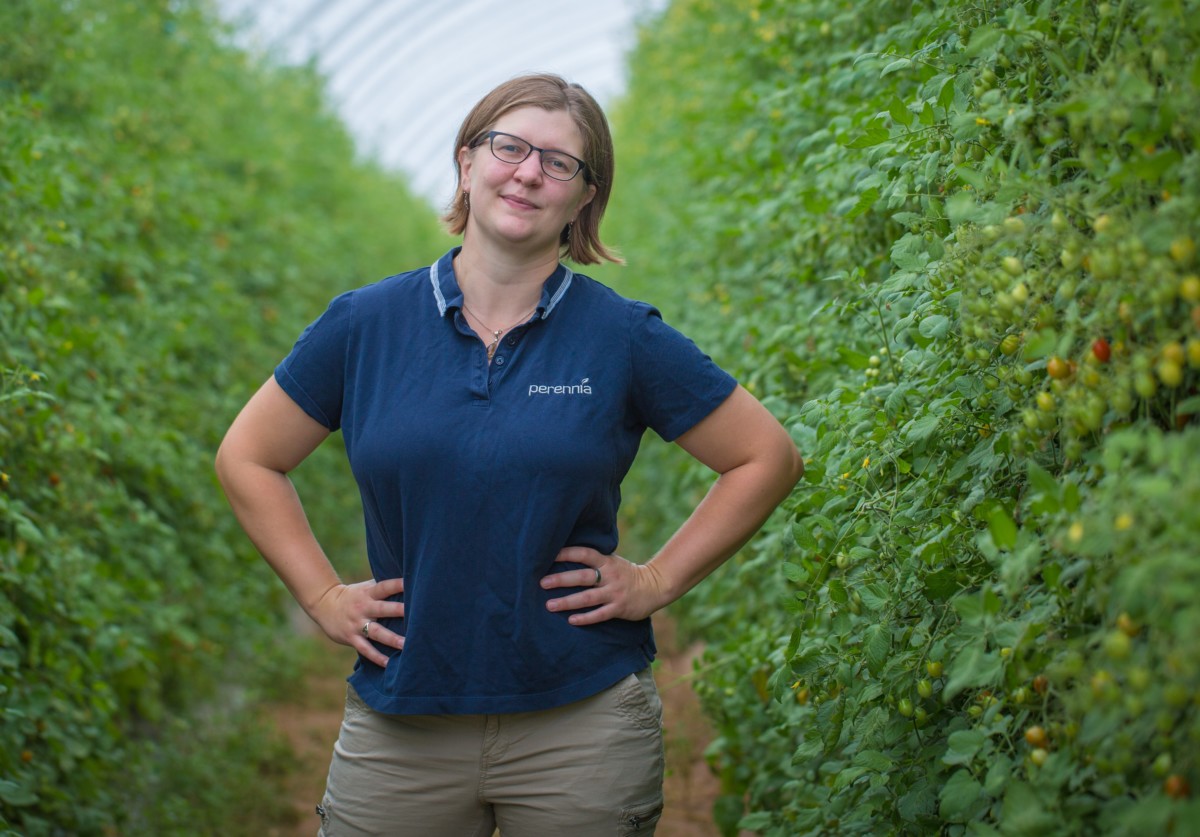
Tell us a bit about yourself and your role in the agriculture industry in Nova Scotia
I’m originally from Vermont and earned a B.Sc. at McGill University in Environmental Science and Food Production. I worked for the University of Vermont Extension for four years as a Crops and Soils Technician and Resource and Education Coordinator, working largely with the dairy industry and in field crops, oilseeds, forages, and hops. I moved to Nova Scotia in 2013 to go to Dal-AC where I did my M.Sc. with Dr. Derek Lynch studying the nitrogen dynamics of leguminous cover crops in crop rotations. I started working for Perennia Food and Agriculture as the Vegetable Specialist in 2015. In that role I’ve worked with both conventional and organic vegetable producers. My goal is to support farmers and enable informed decision-making about best management practices that are suitable to each farm and business model. I have recently transitioned to a new position as On Farm Climate Action Fund Technical Project Manager at Perennia. The On Farm Climate Action Fund is an exciting opportunity that aims to assist farmers in implementing best management practices on their farms around cover crops, nitrogen management, and rotational grazing. I’m passionate about soil health, cover cropping, and extension education, and very happy to get the chance to work with cows again!
What is one message you would like to share about women in agriculture for International Women’s Day?
It’s a time of a lot of upheaval in the agriculture industry today, but a lot of hope and opportunity too. Fertilizer prices are through the roof, fuel is super expensive, the pandemic, supply chain issues, and the global state of affairs are casting a haze over the future that makes it hard to predict what could happen next. Plus pandemic. But there continues to be passion and support among consumers for local agriculture and local food, which is exciting. And even though there’s a lot of uncertainty coming down the pipes from climate change, the federal and provincial government are putting dollars behind both adapting to and mitigating the effects. I mean, the term “soil health” is starting to become common parlance, where a decade, decade and a half ago, it was still a novel concept gaining traction. And while women have traditionally been an underrepresented group in agriculture, according to the Canadian Census of Agriculture, this trend is changing. You certainly see that at the AC, more than half the graduating class has been women for the last number of years. There’s been an increase in new entrants to agriculture in the last decade too, the majority of whom are women. I have the privilege of interacting with a lot of powerful women in the ag industry, who are farmers, CEO’s, executive directors, who lead boards, sit on industry groups, ask tough questions at field days and workshops, or are quietly (or not so quietly) making a difference on the farm, building the business, growing good food, and being good stewards of the land. There’s a lot of passion and vision there, and I think even in the face of some of the adversity we have coming at us, there’s a bright future. I love working in agriculture for a million different reasons, but the awesome people in this industry ranks pretty highly as one of the perks of the job.

